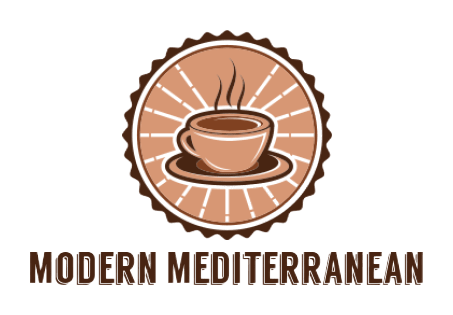Coffee is one of the most beloved and widely consumed beverages in the world. For coffee enthusiasts, the experience of savoring a perfect cup of coffee goes beyond taste; it includes an appreciation for the journey that the coffee bean has taken from farm to cup. Decoding coffee labels and understanding the various certifications and labels can provide valuable insights into the coffee’s origin, production methods, and environmental and social impact. In this article, we will delve into the world of coffee certifications and labels, guiding you through the intricacies of each.
The Importance of Coffee Labels
Coffee labels are much more than just eye-catching designs; they convey crucial information about the coffee’s quality, sourcing, and production practices. Understanding these labels empowers consumers to make informed choices that align with their values and preferences.
By supporting coffee producers who uphold sustainable and ethical practices, consumers play a pivotal role in promoting positive change within the coffee industry.
What is Fair Trade Certification?
Fair Trade certification ensures that coffee is sourced from farmers who are paid fair prices for their harvest, allowing them to support their families and invest in their communities. This certification also emphasizes environmental sustainability, promoting responsible farming methods that protect both people and the planet.
Organic Coffee Certification
Organic coffee certification is a crucial aspect of the coffee industry that ensures coffee is produced in an environmentally friendly and sustainable manner. This certification guarantees that the coffee beans are grown without the use of synthetic pesticides or fertilizers, which can be harmful to both the environment and the consumers.
- Prioritizing Soil Health and Biodiversity
- One of the fundamental principles of organic farming is prioritizing soil health. Organic coffee farmers focus on building and maintaining healthy soil, which serves as the foundation for thriving coffee plants. Instead of relying on chemical fertilizers, organic farmers use compost and natural soil amendments to enrich the soil with essential nutrients. This practice not only enhances the quality of the coffee beans but also contributes to the overall health of the ecosystem.
Moreover, organic coffee cultivation promotes biodiversity on the farms. By avoiding harmful chemicals, organic farms become havens for a variety of plant and animal species. The presence of diverse flora and fauna helps create a balanced and resilient ecosystem that can better withstand environmental challenges.
- Protecting the Environment
- Conventional coffee farming often involves the use of synthetic pesticides and herbicides to control pests and weeds. However, these chemicals can have detrimental effects on the environment. They can contaminate soil and water, harm non-target organisms, and contribute to the development of pesticide-resistant pests.
Organic coffee certification prohibits the use of such chemicals, reducing the negative impact on the environment. Instead, organic farmers use natural pest control methods, such as introducing beneficial insects or using companion planting techniques to deter pests. This approach not only protects the environment but also supports the long-term sustainability of coffee farming.
- Ensuring Healthier Coffee
- For coffee enthusiasts who are conscious of their health, organic coffee certification provides peace of mind. Since organic coffee is grown without synthetic chemicals, there is no risk of pesticide residues finding their way into the final product. As a result, organic coffee offers a cleaner and healthier option for consumers to enjoy their favorite beverage without compromising their well-being.
Moreover, organic coffee is often grown using traditional and time-tested methods that have been passed down through generations. These methods prioritize the natural rhythms of the coffee plant and the surrounding ecosystem, resulting in coffee with a unique and authentic flavor profile.
- Supporting Sustainable Farming Communities
- Organic coffee certification not only benefits the environment and consumers but also supports the livelihoods of coffee farmers and their communities. By adhering to organic farming practices, coffee growers can improve the long-term productivity of their land. This leads to more stable yields and a reduced reliance on expensive inputs, enhancing the economic sustainability of coffee farming.
Furthermore, organic certification often opens doors to niche markets that value sustainable and ethically produced coffee. This access to premium markets can result in better prices for organic coffee, providing farmers with a fair income for their hard work and dedication.
Shade-Grown Coffee Certification
Shade-grown coffee is cultivated under a canopy of trees, mimicking the coffee plant’s natural habitat. This certification supports biodiversity, as it provides a refuge for migratory birds and other wildlife. Shade-grown coffee farms also contribute to carbon sequestration and help combat deforestation.
Rainforest Alliance Certification
The Rainforest Alliance certification focuses on promoting sustainable land management and conservation of natural resources. Coffee with this label comes from farms that meet strict environmental, social, and economic standards.
UTZ Certified Coffee
UTZ certified coffee is a mark of excellence in responsible and sustainable coffee production. This certification program focuses on various critical aspects, including sustainable farming practices, fair treatment of workers, and efficient farm management. The aim is to improve the livelihoods of coffee farmers while safeguarding the environment for future generations.
- Sustainable Farming Practices
At the core of UTZ certification is the promotion of sustainable farming practices. Coffee farms that adhere to UTZ standards prioritize the responsible use of natural resources, such as water and soil. They implement techniques that reduce waste, minimize pollution, and protect the biodiversity of the surrounding ecosystems.
Through sustainable farming methods, UTZ certified coffee farms strive to enhance the long-term productivity of their land. This not only ensures a stable and reliable supply of high-quality coffee beans but also contributes to the overall sustainability of the coffee industry.
- Fair Working Conditions
UTZ certification places a strong emphasis on ensuring fair working conditions for coffee farm workers. It advocates for safe and healthy working environments, fair wages, and access to essential amenities. Additionally, the certification program prohibits child labor and any form of forced labor.
By providing fair working conditions, UTZ certified coffee farms promote the well-being and dignity of their workers. This commitment to social responsibility extends beyond the farm to impact the entire coffee supply chain positively.
- Efficient Farm Management
Efficiency in farm management is another essential aspect of UTZ certification. By adopting efficient practices, coffee farms can optimize their operations, reduce waste, and improve overall productivity. This not only benefits the farmers economically but also has positive environmental implications.
UTZ certification encourages coffee farmers to stay up-to-date with the latest agricultural technologies and best practices. This helps them make informed decisions about resource allocation and ensures the sustainable growth of their coffee businesses.
- UTZ Certified Coffee Table
To further illustrate the key aspects of UTZ certified coffee, here is a table summarizing the main points:
| Aspect | Description |
| Sustainable Farming | Prioritizes responsible use of natural resources, reduces waste, and protects biodiversity. |
| Fair Working Conditions | Ensures safe and healthy working environments, fair wages, and prohibits child and forced labor. |
| Efficient Farm Management | Optimizes farm operations, reduces waste, and embraces best practices for sustainable growth. |
UTZ certified coffee sets a high standard for responsible coffee production. By focusing on sustainable farming practices, fair treatment of workers, and efficient farm management, this certification program strives to make a positive impact on both coffee farmers and the environment. Choosing UTZ certified coffee empowers consumers to support ethical and sustainable practices within the coffee industry, ensuring a better future for all stakeholders involved.
How to Choose Coffee Based on Labels
Selecting the right coffee involves considering personal preferences, ethical values, and taste preferences. By understanding coffee labels, consumers can make choices that align with their beliefs and contribute to positive change.
Decoding coffee labels and understanding certifications and labels empower coffee enthusiasts to make conscious choices that positively impact the coffee industry. By supporting ethical and sustainable practices, consumers become part of a broader movement toward a more equitable and environmentally friendly coffee trade.
FAQs
- Q: What does Fair Trade certification mean for coffee? A: Fair Trade certification ensures that coffee is sourced from farmers who receive fair prices for their crops, promoting social and environmental responsibility.
- Q: What is the significance of organic coffee certification? A: Organic coffee certification guarantees that coffee is grown without synthetic chemicals, supporting healthier farming practices.
- Q: How does shade-grown coffee benefit the environment? A: Shade-grown coffee promotes biodiversity, provides habitats for wildlife, and contributes to carbon sequestration.
- Q: What does the Rainforest Alliance certification focus on? A: The Rainforest Alliance certification emphasizes sustainable land management and the conservation of natural resources.
- Q: What is the difference between direct trade and other coffee sourcing methods? A: Direct trade fosters direct relationships between coffee roasters and farmers, promoting transparency and fair compensation.

